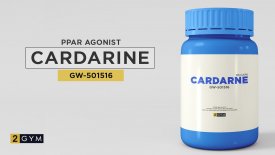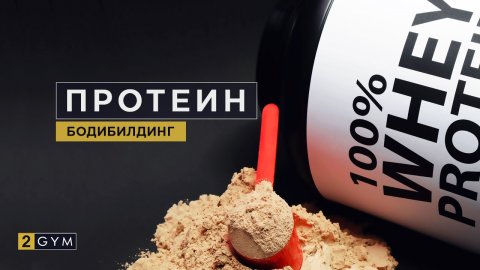Agmatine
Kossel made his discovery back in 1910. That same year, a study showed a slight stimulation of blood flow in rabbits by agmatine, and in 1920, agmatine was found to have a mild hypoglycemic effect. After that, this derivative of arginine was forgotten for a long time.
Kossel's discovery was only remembered in 1994, but serious research didn't begin until another decade later. And it turned out that agmatine is a very useful substance that can be successfully used in medical practice.
Then athletes got interested. Let's agree: I will base my conclusions on research, not on promotional articles from sports nutrition manufacturers or claims like "I tried it and it really worked for me."
Remember the 1910 study? It gave birth to the myth about agmatine's incredible ability to stimulate blood flow and fill muscles with blood.
The 1920 study started the legend about agmatine's ability to influence muscle growth. Let's figure out what's true and what's not, starting with the "much more powerful version of arginine."
Effects of Agmatine on the Body
In fact, agmatine does not increase, but decreases nitric oxide levels in the body – by blocking the relevant enzyme
At first glance, this doesn't seem very good, but it reduces the risk of stroke, relieves swelling, and has a slight positive effect on the cardiovascular system. This is all you need to know about agmatine's effect on blood flow.
Muscle Growth
What about muscles? Someone somehow decided that agmatine's hypoglycemic properties are explained by the stimulation of insulin secretion, and insulin, of course, means muscles.
In fact, there is no increase in blood insulin levels after a dose of agmatine – its action is explained by other mechanisms, which are not particularly relevant here.
Just remember: agmatine has no effect on muscle growth.
Neuropathy
But let's return to reality. The renewed interest in agmatine began with one hypothesis: this substance is synthesized in the brain, and therefore, it could be a neurotransmitter. That is, it should facilitate signal transmission between neurons.
Research confirmed the hypothesis: it turned out that agmatine can suppress pain sensations. However, this mainly applies to neuropathic pain and pain associated with inflammation.
Agmatine works best "in combination" with strong painkillers from the opioid class, such as morphine.
Interestingly: it turned out that this "child of arginine" reduces drug addiction. It also reduces alcohol craving, since alcoholism is a type of drug addiction. Additionally, it protects the brain from the effects of various toxic substances.
Stress and Mood
It was found that the body starts actively producing agmatine in stressful situations. Essentially, this substance prevents the increase in irritability and spontaneous outbursts of anger. Agmatine can also help overcome depressive states.
And finally, it is worth mentioning that agmatine is not yet a medicinal drug. The word "used" in the title of this section refers not to general medical practice, but rather to research and experiments.
Agmatine in Sports
How can agmatine be useful for athletes? Athletes suffering from alcohol addiction will undoubtedly find agmatine useful. I'm trying to be funny, of course, but there is a grain of truth here.
Correction of Psycho-Emotional State
Alright, let's get completely serious: agmatine is very good at helping with depression, and athletes are not infrequently visited by depression. It can be caused by various reasons, including the cessation of various types of stimulants.
Sports Pharmacology
The same situation, that is, either excessive enthusiasm for psychostimulants or certain anabolic steroids, can cause spontaneous outbursts of anger – in this case, agmatine can also help.
Injuries
And injuries, unfortunately, are constant companions not only of professional athletes but also of those who go to the gym and sports fields to gain health.
Agmatine's "specialization," I remind you, is pain sensations associated with inflammatory processes, and the pain accompanying sports injuries has just such an origin.
Heart
Athletes might find agmatine's mild but still beneficial effect on the heart useful: it can slightly reduce heart rate and blood pressure. And significantly reduce the risk of stroke – which is important.
However, relying on agmatine as the sole treatment for hypertension is not advisable.
In almost all studies, agmatine was administered to subjects via injection. But experiments with the oral form of this substance show that it can also be quite effective. Although more research is needed here.
Conclusion
Even though agmatine has nothing to do with muscle growth, strength, or endurance enhancement, it can still be useful in sports practice. And even more so in clinical practice.

























Log in with ( Sign Up ? )
or post as a guest
Be the first to comment.